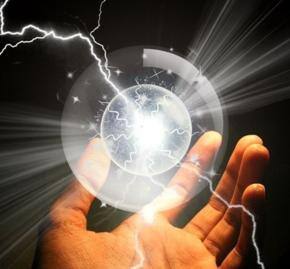God Particle: the Indian connection

There is a significant Indian connection to the discovery of Higgs Boson – or God Particle – last week; that of scientist Satyendra Nath Bose.
An international collaboration of scientists announced the discovery of a new particle last week that could explain unknown aspects of the universe.
The Higgs boson, which scientists theorise gives every particle mass, was observed at the world’s largest particle accelerator, the Large Hadron Collider.
They were able to observe the Higgs boson because within the LHC, protons travel at nearly the speed of light and smash into each other — reaching energies comparable to what scientists think occurred during the Big Bang.
In the 1960s, scientists theorised the existence of an energy field that interacts with every particle. The more particles interact with the field, the greater mass they gain, the BBC reported.
Peter Higgs wrote a paper proposing that the particle within this energy field could be observed because it would also interact with itself like it interacts with every other particle.
Thus, the particle became known as the Higgs boson — its surname coming from Indian scientist Satyendra Nath Bose, who defined “bosons” as a time of particle.
Scientists have been searching for the Higgs boson ever since. Because it decays instantaneously into other particles, the researchers at CERN were actually observing its decay products — smaller particles like electrons and quarks.
The particle has been the subject of a 45-year hunt to explain how matter attains its mass.
Both of the Higgs boson-hunting experiments at the LHC see a level of certainty in their
data worthy of a "discovery". More work will be needed to be certain that what they see is a Higgs, however. Prof Stephen Hawking told the BBC's Pallab Ghosh the discovery had cost him $100.
The results announced at Cern (European Organization for Nuclear Research), home of the LHC in Geneva, were met with loud applause and cheering.
Prof Higgs, after whom the particle is named, wiped a tear from his eye as the teams finished their presentations in the Cern auditorium.
"I would like to add my congratulations to everyone involved in this achievement," he added later. "It's really an incredible thing that it's happened in my lifetime."
Prof Hawking joined in with an opinion on a topic often discussed in hushed tones.
"This is an important result and should earn Peter Higgs the Nobel Prize," he told BBC News.
"But it is a pity in a way because the great advances in physics have come from experiments that gave results we didn't expect."
There is a significant Indian connection to the discovery of Higgs Boson – or God Particle – last week; that of scientist Satyendra Nath Bose.
An international collaboration of scientists announced the discovery of a new particle last week that could explain unknown aspects of the universe.
The...
There is a significant Indian connection to the discovery of Higgs Boson – or God Particle – last week; that of scientist Satyendra Nath Bose.
An international collaboration of scientists announced the discovery of a new particle last week that could explain unknown aspects of the universe.
The Higgs boson, which scientists theorise gives every particle mass, was observed at the world’s largest particle accelerator, the Large Hadron Collider.
They were able to observe the Higgs boson because within the LHC, protons travel at nearly the speed of light and smash into each other — reaching energies comparable to what scientists think occurred during the Big Bang.
In the 1960s, scientists theorised the existence of an energy field that interacts with every particle. The more particles interact with the field, the greater mass they gain, the BBC reported.
Peter Higgs wrote a paper proposing that the particle within this energy field could be observed because it would also interact with itself like it interacts with every other particle.
Thus, the particle became known as the Higgs boson — its surname coming from Indian scientist Satyendra Nath Bose, who defined “bosons” as a time of particle.
Scientists have been searching for the Higgs boson ever since. Because it decays instantaneously into other particles, the researchers at CERN were actually observing its decay products — smaller particles like electrons and quarks.
The particle has been the subject of a 45-year hunt to explain how matter attains its mass.
Both of the Higgs boson-hunting experiments at the LHC see a level of certainty in their
data worthy of a "discovery". More work will be needed to be certain that what they see is a Higgs, however. Prof Stephen Hawking told the BBC's Pallab Ghosh the discovery had cost him $100.
The results announced at Cern (European Organization for Nuclear Research), home of the LHC in Geneva, were met with loud applause and cheering.
Prof Higgs, after whom the particle is named, wiped a tear from his eye as the teams finished their presentations in the Cern auditorium.
"I would like to add my congratulations to everyone involved in this achievement," he added later. "It's really an incredible thing that it's happened in my lifetime."
Prof Hawking joined in with an opinion on a topic often discussed in hushed tones.
"This is an important result and should earn Peter Higgs the Nobel Prize," he told BBC News.
"But it is a pity in a way because the great advances in physics have come from experiments that gave results we didn't expect."








Leave a Comment